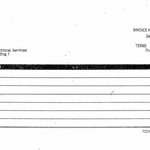
Nebraska may have executed Carey Dean Moore in August 2018 using drugs supplied by a pharmacy in violation of pharmaceutical manufacturers’ distribution policies, Nebraska Department of Correctional Services (NDCS) records suggest.
The records show that Community Pharmacy Services, a local pharmacy based in Greta, Nebraska, provided the state with supplies of five potential execution drugs. The distribution policies of the companies that produced the medicines prohibited their sale for use in executions. Nebraska subsequently rebuffed requests by the manufacturers to return the drugs.
NDCS released the documents July 23, 2020, in response to a Nebraska Supreme Court order in open-records lawsuits filed by the Omaha World-Herald, Lincoln Journal Star, and the ACLU of Nebraska. The records show that Community Pharmacy, which normally provides pharmaceuticals for long-term care facilities, received a $492,000 two-year contract to manage NDCS’s pharmacy from October 1, 2016, to September 30, 2018. The company invoiced NDCS $8,000 and $2,500 — disguised on invoices as “Miscellaneous expense” payments — for supplies of fentanyl, diazepam, cisatracuriam, and potassium chloride for the state’s one-of-a-kind four-drug execution protocol. The state also purchased a supply of the drug hydromorphone but did not use it in the execution. Hydromorphone was one of the drugs implicated in the botched execution of Joseph Wood in Arizona in July 2014.
The pharmacy’s owner, Kyle Janssen, posted a statement on the company’s website, saying he “regretted the decision as it does not align with our company’s values to provide the best patient care and customer service to the long-term care industry.”
The statement said: “In a deviation from our core business, we were hired to manage the pharmacy operations for the Nebraska Department of Corrections facilities from 2016 – 2018. During the course of that contract, the company was asked by the state to legally sell drugs to the department. The company fulfilled that order following all DEA protocols and procedures, and understood the potential use of those drugs.
“Community Pharmacy Services has never supplied drugs since then to the Nebraska Department of Corrections or any other department of corrections, nor will it ever again.”

In 2017, the Omaha World-Herald, Lincoln Journal Star, and the Nebraska chapter of the ACLU separately sued NDCS after the department denied open-records requests for lethal-injection records related to the planned execution of Carey Dean Moore. In June 2018, two months before Moore’s scheduled execution, a Nebraska trial court ordered NDCS to disclose the records. However, the state appealed the decision, successfully thwarting release of the documents in advance of Moore’s execution. In May 2020, the Nebraska Supreme Court unanimously ordered NDCS to release the records.
Shortly before Moore’s execution, the German-based pharmaceutical company Fresenius Kabi learned that Nebraska intended to execute Moore with drugs manufactured by the company. The company filed suit in Nebraska federal court alleging that Nebraska had obtained the drugs “through improper or illegal means.” The lawsuit said the company’s distribution contracts with authorized wholesalers and distributors prohibited sales to departments of corrections. It further alleged that Nebraska had obtained the drugs “in contradiction and contravention of the distribution contracts,” most likely from an unauthorized supplier.
Two other companies who manufactured drugs that Community Pharmacy Services supplied for the execution — Hikma Pharmaceuticals USA and Pfizer Inc. — said they also asked the Nebraska Department of Correctional Services to return their drugs. The state refused. “We strongly object to the use of any of our products in the lethal injection process for capital punishment,” Pfizer spokeswoman Sally Beatty told the Lincoln Journal-Star.
Community Pharmacy Services would not respond to media questions as to whether its purchase of the drugs for use in lethal injection violated pharmaceutical company drug distribution contracts or could subject the pharmacy to legal liability.
JoAnne Young and Lori Pilger, State of Nebraska ignored drug manufacturers demands to return execution drugs, Lincoln Journal Star, July 25, 2020; JoAnne Young and Lori Pilger, Lethal injection drugs for Moore execution supplied by Nebraska pharmacy, court-ordered documents reveal, July 24, 2020; Paul Hammel, Nebraska’s new lethal injection drugs came from Gretna pharmacy, Omaha World-Herald, July 23, 2020.
You can read the redacted records released by Nebraska in response to the court order here.



